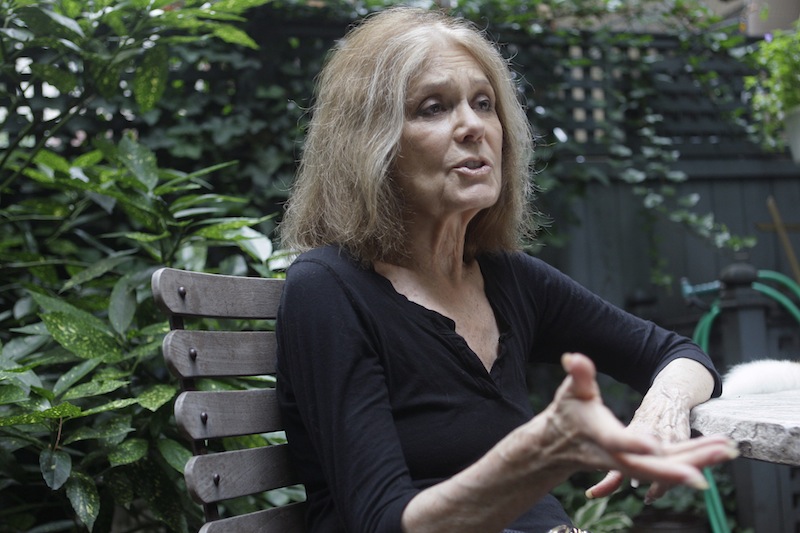The Ms. Foundation for Women held a star-studded gala last week heralding its 40 years of activism, and celebrating feminist icon Gloria Steinem’s 80th birthday. Founded in 1974, the Ms. Foundation has been devoted to eradicating economic inequality for women — and Steinem in particular been a thought leader in the many ways in which women’s labor is valued less than men’s.
Just one day prior to the gala, the Senate Republicans successfully filibustered Democrats’ attempt to raise the minimum wage from $7.25 per hour to $10.10 per hour. The measure would have phased in over two years, and it would have also raised the tipped minimum wage (currently a meager $2.13 per hour for servers and other tipped professions).
This vote — and Congress’s overall lack of will to raise wages for U.S. workers — disproportionately affects women. According to last month’s analysis by National Women’s Law Center, some two-thirds of all minimum wage positions are held by women. In at least four states (Nebraska, Arkansas, West Virginia, and Vermont), more than 70 percent of all minimum wage workers are women. In at least 20 states (including Texas, Oregon, Georgia, and Alabama), 60 percent of all minimum wage workers are women.
Some states and localities are taking note and raising wages on their own. However, a federal minimum wage increase is critical for improving all women’s earnings across the country. While the movement to raise wages in cities and states throughout the country is important, only a federal wage hike can improve the earning power of women in all the 25 states who are currently trapped in $7.25 per hour jobs.
Earning a minimum wage salary is not enough to afford rent in most parts of the country. To make matters worse, the low wage positions women dominate are also growing fastest, meaning more women will be affected by low wages in the future. National Employment Law Project (NELP) data released last month reveal that low wage jobs constitute 44 percent of all jobs gained in the economic recovery (though only 22 percent were lost). These sectors include food service, home health care, and retail.
The $7.25 minimum wage that workers in these growing sectors may legally earn has not kept pace with inflation, either: today, the minimum wage should be $10.86.
State and city activism around raising the minimum wage does not seem to be urging Congress in a similar direction. Also last week, Seattle Mayor Ed Murray announced that the city would raise its minimum wage to $15 per hour. The wage hike would phase in over three years for the city’s largest employers, four years for employers who also offer health care, or seven years for smaller businesses. The city’s plan has been criticized as taking too long to phase in for all workers. Seattle City Councilwoman Kshama Sawant plans to propose an immediate wage hike as a ballot initiative for voters to decide in the fall.
In her 1994 essay “Revaluing Economics,” Steinem argued that a worker’s gender directly influences her earning power and the economic worth of her labor. She wrote, “The truth was (and still is) that in the United States, as in almost every country, categories of work are less likely to be paid by the expertise they require — or even by importance to the community or to the often mythical free market — than by the sex, race and class of most of their workers. …The free market has little to do with it.”
While a federal minimum wage hike doesn’t root out these systemic issues, it would help ensure that the women who fill the fastest growing jobs in the United States will have more economic security.
Steinem’s essay was first published two decades ago but still rings true today. The Senate — composed of 80% men — is failing to take the most natural steps that would help improve women’s economic status. Its inaction in raising the minimum wage reveals how critical feminist activism around women’s economic issues continues to be.
Sheila Bapat is a former employment attorney who now writes about gender and economic justice. Her book about the U.S. domestic workers’ movement will be released by Ig Publishing in 2014.







A maximum spread would still be better. The lowliest paid worker should be entitled to hourly wages at least 1/100,000 the richest executive’s total annual compensation. It would align the self interest of the CEO with the needs of his human resources. Market wages for unskilled labor would cap executive pay in the low 6 figures and an executive who figured out how to pay everyone $50 per hour would truly be worth $5 million.